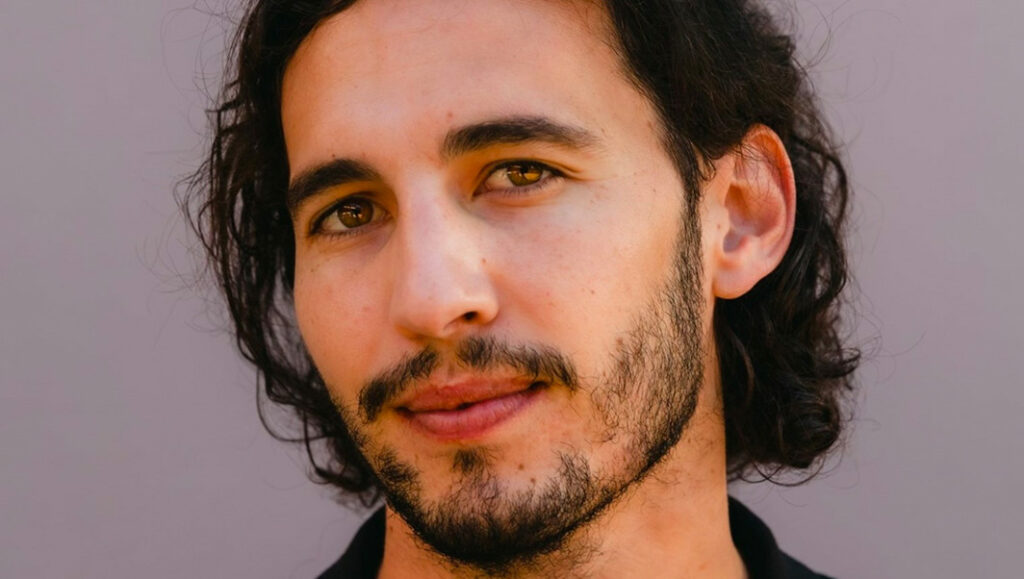Exclusive Interview: Writer-Director Augustus Meleo Bernstein Takes Us Behind the Scenes of His Debut Feature ‘At the Gates’

Writer-director Augustus Meleo Bernstein is an exciting and much-needed new voice in the industry. His debut feature, At the Gates, is a timely narrative about the effects and horrors of deportation.
Ana (Vanessa Benavente), a housekeeper from El Salvador, brings her teenage son Nico (Ezekiel Pacheco) to help her clean an affluent family’s Los Angeles home. But after someone rings the front gate, her employers, Marianne (Miranda Otto) and Peter Barris (Noah Wyle), inform them that immigration officers are searching for them and convince the pair to hide in a basement closet, demanding they hand over their cell phones as a safety precaution. As days go by under the same roof, each family begins to question the other’s true intentions in this riveting and emotional thriller from first-time feature director Augustus Meleo Bernstein.
Pop Culturalist was lucky enough to speak with Augustus about At the Gates, how he built authenticity and trust with his cast, and more.
PC: At the Gates is your first full-length feature. Congratulations. How long has this narrative been sitting with you? What inspired it?
Augustus: A long time. [laughs] We really started working on it in 2017. There was an increase in immigration raids happening throughout the country. People that I knew and cared about were all staying in place. They were nervous. It was a time of a lot of fear. That’s when the writing process first started. I wouldn’t have been able to make this movie without my friends from film school. We all banded together for this project. Eight of them worked on this movie with me, and we started to put this project together.
PC: It was really important to you as the writer and director for your cast to bring their authentic experiences to these characters and this narrative. What was that collaboration process like, particularly with Ezekiel [Pacheco] and Vanessa [Benavente]? How did that process help elevate the material?
Augustus: When we found Ezekiel, the movie completely found itself. Ezekiel is here under the DACA program, which protects him from deportation, even though he came here as a child and lived here without papers. Vanessa and I went to Ezekiel’s house and met his family. We spent a lot of time together and worked in personal moments like the way that people talk to each other or the way they care for one another. We tried to bring a lot of that into the script.
PC: There’s also a lot of vulnerability that you ask from your actors with this project, especially in the second half. As the writer-director, how did you create the space for them to do just that?
Augustus: Improv. I really like improv. But the scene is written, and what we like to do is do it again without using any of the dialogue that’s there, but the scene needs to start and end in the same place. It’s improv, but it’s more structured. The actors need to start and end in the same place rather than finding it in the moment. Whether we used it or not, it allowed the actors to connect to the material on a level where they were just creating.
PC: It’s a brilliant technique and choice. The house in which the project is filmed feels like a character in itself. As an audience member, you feel that sense of dread and anxiety as it goes on. From a production standpoint, how challenging was it to find that location because it feels expansive yet claustrophobic? How were you and Alan [Torres] able to toe that line so seamlessly?
Augustus: It was really hard because the story has a basement. Our characters are hiding from the police there. In Los Angeles, if you’ve seen Zodiac, there aren’t many basements here. [laughs] The house has to be built before 1930 or after 2000 because of different regulations.
We realized we were going to set this story in Hancock Park, which is this historic old neighborhood here in Los Angeles; many of the houses here were built in the 1920s or earlier. A lot of them have basements. That was critical. We found this house, and it had this aristocratic creepiness that felt scary and grand at the same time. We knew we wanted these cameras to stay stationary and trapped in this house with these characters.
Another thing that Alan and I were focused on was the lighting. When we first get to the house, the windows are open. Ezekiel and Vanessa’s characters are cleaning the house and preparing it for the family. But as they start to hide in this house from the police, the windows get drawn and the lighting becomes more contrasted and it gets more dramatic, and the story gets really tense.
PC: It becomes a little bit more muted as well. Like we were saying earlier, this is your feature film debut as a writer-director. What was the most surprising part about this whole experience? What’s been the biggest takeaway for you?
Augustus: The biggest takeaway is the importance of friendship. These are friends that I had at film school. I would not have been able to make this movie without them. We really banded together. Film is a collaborative effort and it requires a lot of passionate people who are willing to work for a few weeks, all day long, and on very little sleep. The biggest takeaway is how beautiful the process of filmmaking is and how close you get with your collaborators.
At the Gates is in select theaters in Los Angeles on 11/3 and in New York on 11/10.


Discussion about this post